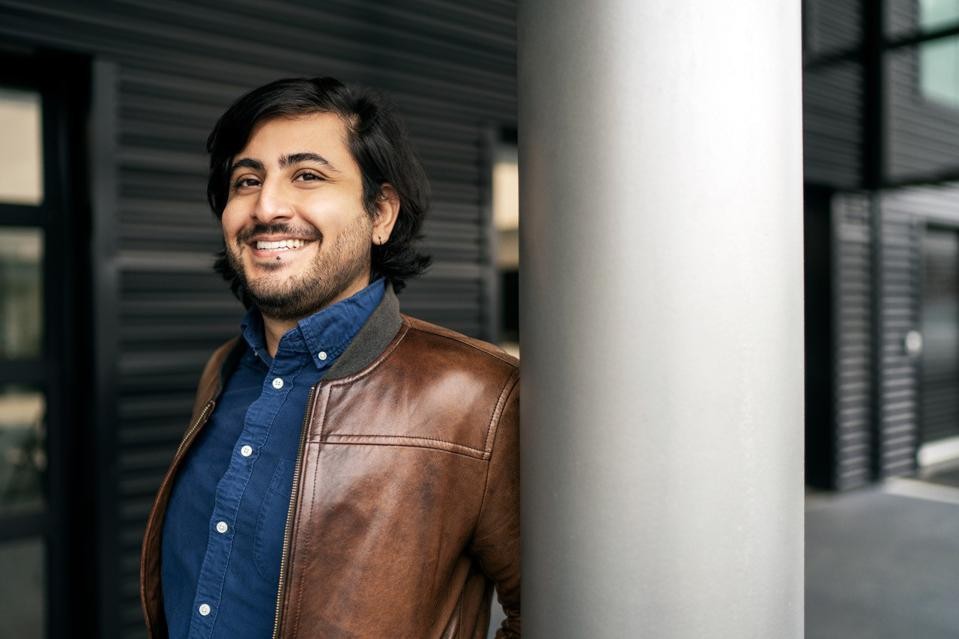
In June 2017, Zayd Enam had just presented research in a team meeting at Stanford’s AI laboratory when the doctoral student was pulled aside by his professor.
In June 2017, Zayd Enam had just presented research in a team meeting at Stanford’s AI laboratory when the doctoral student was pulled aside by his professor. “These are amazing results. Do you want to keep writing papers on this or do you want to start a company?” Enam recalls the adviser saying. A week later and with trepidation, Enam and classmate Tim She dropped out to start a company called Cresta.
Less than four years later, Enam’s no longer doubting his choice. Cresta is announcing that it raised $50 million in Series B funding led by Sequoia, with participation from Andreessen Horowitz, Greylock Partners, Allen & Company and Porsche Ventures. The raise brings the company’s total funding to nearly $76 million as Cresta says it’s revenue quadrupled during the pandemic.
Cresta’s premise is simple: on any sales team, high performers will help carry the rest. For instance, while selling an internet plan, “What the worst salespeople do is that they just try to sell the most expensive plan,” says Enam, 29. “But the good salespeople try to understand if you are going to use the internet for Youtube or to watch TV, and then find the best package for that.”
Using its artificial intelligence tools, Cresta studies chats and phone conversations, then tells retail representatives the “best,” or most likely to be effective, replies while they’re still on the line. Agents using the startup’s software convert 20% more sales than those who don’t Enam claims.
As shopping has increasingly moved virtual during the Covid-19 pandemic, such a service has been in high demand. Most recently, Cresta expanded its software to provide real-time transcriptions and suggestions for call center agents, too. “People aren’t going to stores as often, so call centers are becoming the place where people are interacting,” Enam says.
When Enam originally devised the software behind Cresta at Stanford’s AI lab, he used local subjects — his fellow graduate students — to test it out. Studying conversations between teaching assistants and students, his software was able to analyze conversational qualities that made for a more effective TA.
After his own difficult conversation with his father about dropping out, Enam, who immigrated to the U.S. from Karachi, Pakistan, fourteen-years ago, tried to sell his tools to financial software giant Intuit. The company didn’t want to take a chance on a one-person company, he says. Facing rejection from dozens of other leads, Enam accepted an internship offer at the company as an opportunity to pilot his product from the inside. Five months later, Intuit signed on as a customer. Porsche, which invested through its venture arm, eventually signed up too, as well as Cox Communications.
Moving forward, Cresta plans to use the funding to launch new products over the summer, while investing in research and sales. At Sequoia, new investor and board member Carl Eschenbach says he was intrigued by the company’s ability to coexist with existing call center architecture, given the call center’s large amount of repeatable, automation-receptive work. (Eschenbach’s also on the board of $35 billion-valuation robotic process automation company UiPath, under registration to go public.)
Agents who use Cresta, Eschenbach says, are dramatically more productive. “We call them 10x agents,” he says. “They go from what they are doing today to be able to drive 10X increase in their performance.”
Cresta’s not the first to pursue that market — in 2018, Dialpad acquired another conversation analyzer, TalkIQ; Gong, which uses software to study customer interactions, reached a $2.2 billion valuation last year. A bigger question: whether higher productivity for agents means companies will simply employ fewer, cutting headcount to boost profits.
Enam insists Cresta serves to make people more effective, not to replace them. He thinks he’ll be the one to breakthrough in the end. “We want to take Cresta to as many enterprises in the world as possible,” he says.